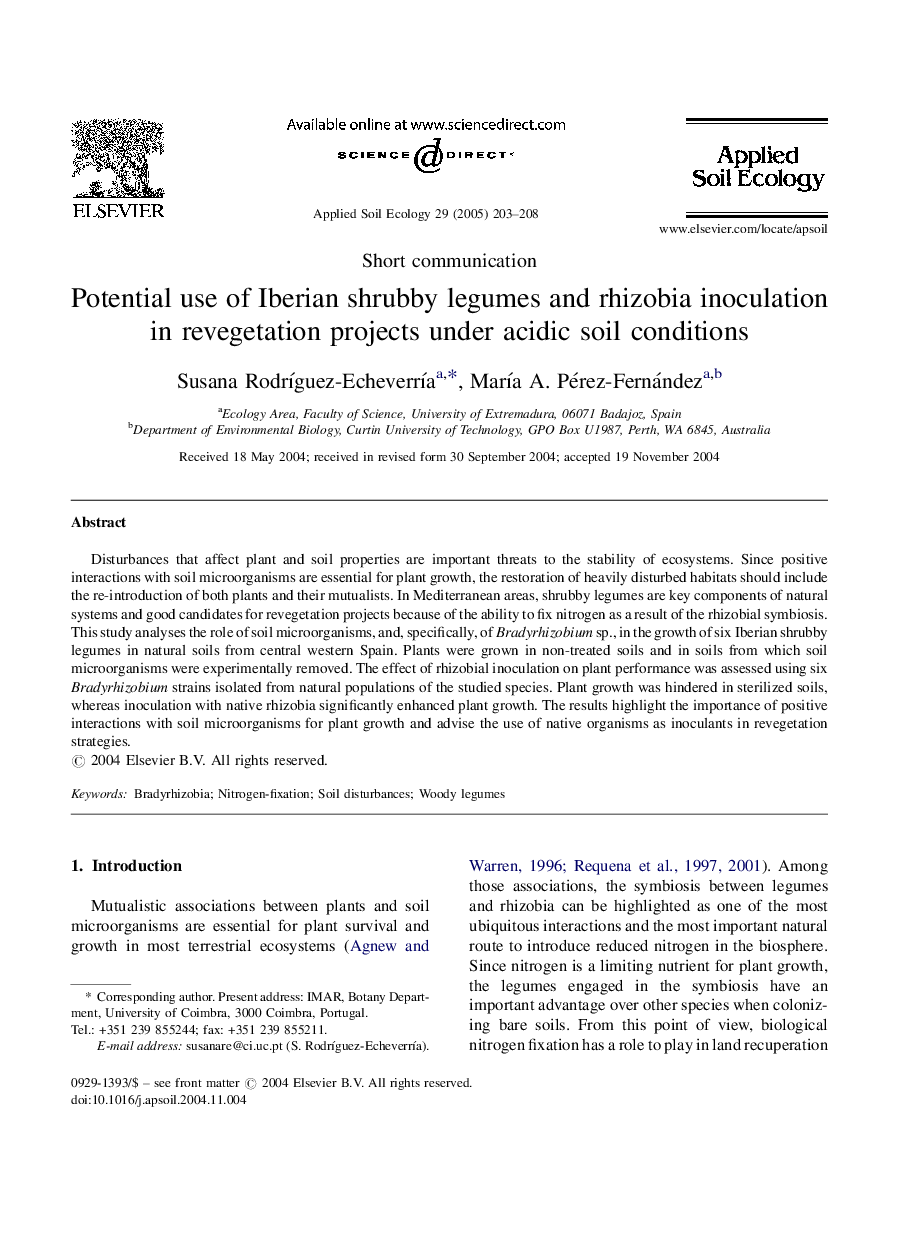| Article ID | Journal | Published Year | Pages | File Type |
|---|---|---|---|---|
| 9445221 | Applied Soil Ecology | 2005 | 6 Pages |
Abstract
Disturbances that affect plant and soil properties are important threats to the stability of ecosystems. Since positive interactions with soil microorganisms are essential for plant growth, the restoration of heavily disturbed habitats should include the re-introduction of both plants and their mutualists. In Mediterranean areas, shrubby legumes are key components of natural systems and good candidates for revegetation projects because of the ability to fix nitrogen as a result of the rhizobial symbiosis. This study analyses the role of soil microorganisms, and, specifically, of Bradyrhizobium sp., in the growth of six Iberian shrubby legumes in natural soils from central western Spain. Plants were grown in non-treated soils and in soils from which soil microorganisms were experimentally removed. The effect of rhizobial inoculation on plant performance was assessed using six Bradyrhizobium strains isolated from natural populations of the studied species. Plant growth was hindered in sterilized soils, whereas inoculation with native rhizobia significantly enhanced plant growth. The results highlight the importance of positive interactions with soil microorganisms for plant growth and advise the use of native organisms as inoculants in revegetation strategies.
Keywords
Related Topics
Life Sciences
Agricultural and Biological Sciences
Ecology, Evolution, Behavior and Systematics
Authors
Susana RodrÃguez-EcheverrÃa, MarÃa A. Pérez-Fernández,
